
Think your favorite foods are safe? Think again! The reality is, your kitchen might be a minefield of cancer-causing culprits. In this explosive article, we’re uncovering 15 foods that could be stealthily sabotaging your health. From breakfast staples to midnight snacks, these everyday eats are more dangerous than you’d ever imagine. It’s time to get real about what we consume and the hidden risks on our plates. Don’t wait for a wake-up call—dive into this shocking list and start protecting yourself now. Your next meal might just be a step towards a healthier, cancer-free life.
1. Processed Meats

Processed meats like bacon, sausages, and hot dogs are staples in many diets. However, these tasty treats are often packed with preservatives and chemicals such as nitrates and nitrites. These compounds can form carcinogenic substances in the body. Studies have shown a significant link between processed meat consumption and colorectal cancer. It’s best to limit these meats and opt for healthier alternatives like fresh poultry or fish.
Evidence from Studies
Numerous studies have linked processed meat consumption to an increased risk of colorectal cancer. A comprehensive analysis by the International Agency for Research on Cancer (IARC) found that consuming 50 grams of processed meat daily increases the risk of colorectal cancer by 18%.
Reducing the Risk
- Limit Intake: Minimize consumption of processed meats.
- Choose Alternatives: Opt for fresh, unprocessed meats or plant-based proteins.
- Cooking Methods: Avoid high-temperature cooking methods like grilling or frying.
2. Red Meat
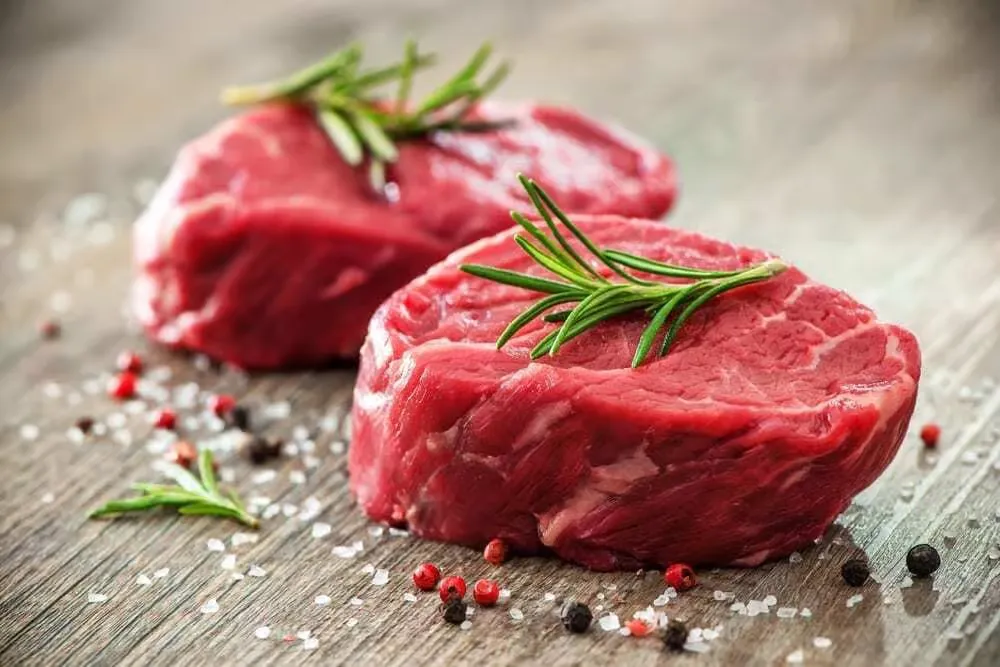
While a juicy steak or a hearty beef stew can be mouth-watering, red meat has been linked to several cancers, including colorectal, prostate, and pancreatic cancers. The high iron content and compounds created during cooking at high temperatures, like heterocyclic amines (HCAs) and polycyclic aromatic hydrocarbons (PAHs), are the main culprits. Reducing your red meat intake and choosing leaner protein sources like chicken, turkey, or plant-based proteins can lower your cancer risk.
Evidence from Studies
Epidemiological studies suggest a positive association between high consumption of red meat and colorectal cancer. Some studies also link red meat to an increased risk of pancreatic and prostate cancers.
Reducing the Risk
- Moderation: Limit red meat consumption to a few servings per week.
- Variety: Include more white meats and plant-based proteins in your diet.
- Cooking Methods: Use gentler cooking methods such as boiling, steaming, or slow cooking to reduce HCA and PAH formation.
3. Microwave Popcorn

Microwave popcorn is a convenient and popular snack, but it can come with hidden dangers. The bags often contain perfluorooctanoic acid (PFOA), a chemical linked to cancer. Additionally, artificial butter flavoring contains diacetyl, which can cause lung damage and has potential carcinogenic effects. For a healthier option, try making air-popped popcorn and seasoning it yourself.
Evidence from Studies
Animal studies have shown that PFOA can cause liver, testicular, and pancreatic tumors. While the direct risk to consumers from occasional exposure is not well established, there is enough concern to warrant caution.
Reducing the Risk
- Air-Popped Popcorn: Make popcorn at home using an air popper.
- Stovetop Method: Use a pot on the stove with a small amount of healthy oil.
- Natural Flavorings: Season popcorn with natural spices and herbs instead of artificial flavors.
4. Salt-Preserved and Pickled Foods
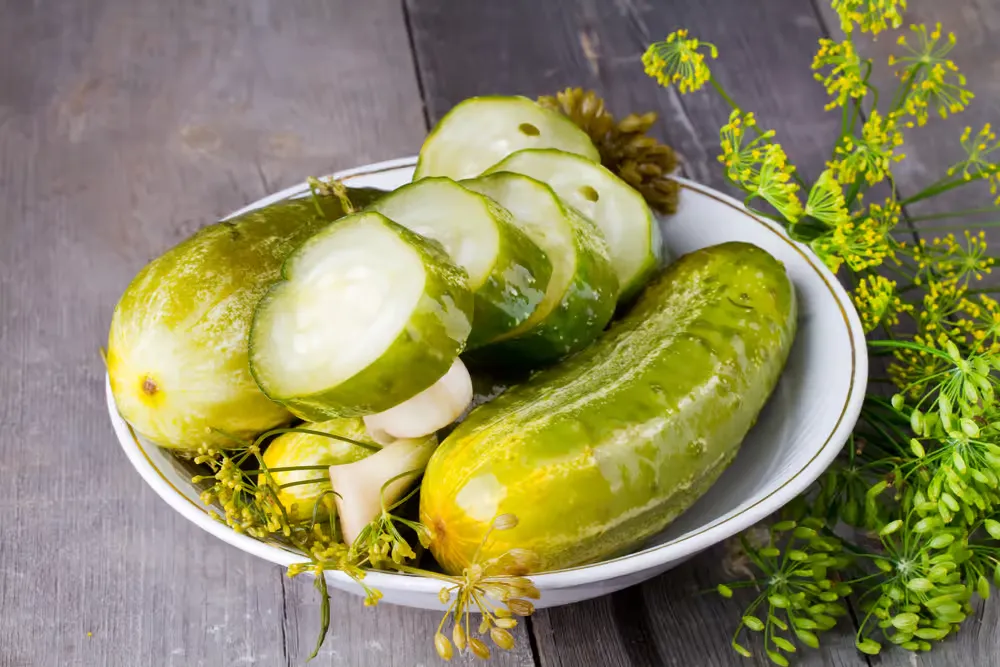
While pickles can add a tasty crunch to your meals, some pickled foods contain high levels of salt and preservatives, which have been linked to stomach cancer. Consuming these foods in moderation and opting for fresh, homemade pickles with less salt can reduce your risk.
Evidence from Studies
Studies have shown that populations with high consumption of salt-preserved foods, such as in some Asian countries, have higher rates of stomach cancer. A meta-analysis published in the journal Cancer Science found a significant association between high salt intake and stomach cancer risk.
Reducing the Risk
- Limit Consumption: Reduce intake of salt-preserved and pickled foods.
- Fresh Alternatives: Choose fresh or frozen vegetables and fish.
- Seasoning: Use herbs and spices instead of salt for flavoring.
5. Hydrogenated Oils

Hydrogenated oils, commonly found in margarine and many processed foods, contain trans fats, which can increase inflammation and are linked to several cancers. Check food labels and avoid products with hydrogenated oils. Use healthier fats like olive oil, avocado oil, or coconut oil for cooking.
Evidence from Studies
A study published in the American Journal of Epidemiology found that women with higher trans fat intake had a significantly increased risk of breast cancer. Other studies have linked trans fats to colorectal cancer.
Reducing the Risk
- Avoid Partially Hydrogenated Oils: Check food labels and avoid products containing trans fats.
- Healthier Fats: Use healthier fats such as olive oil, avocado oil, and nuts.
- Homemade Alternatives: Prepare baked goods at home using healthier ingredients.
6. Refined Carbohydrates

Refined carbs, such as white bread, pastries, and sugary cereals, can spike blood sugar levels and contribute to obesity, a significant cancer risk factor. These foods lack the fiber and nutrients found in whole grains. Choose whole-grain alternatives like brown rice, quinoa, and whole wheat products to lower your cancer risk.
Evidence from Studies
Several studies have linked high glycemic index diets to an increased risk of various cancers, including breast and colorectal cancer. A study published in the Journal of the National Cancer Institute found that high glycemic load diets were associated with an increased risk of breast cancer in postmenopausal women.
Reducing the Risk
- Whole Grains: Choose whole grains over refined grains.
- Balanced Diet: Include a variety of fruits, vegetables, and lean proteins.
- Limit Sugars: Reduce intake of sugary snacks and desserts.
7. Artificial Sweeteners
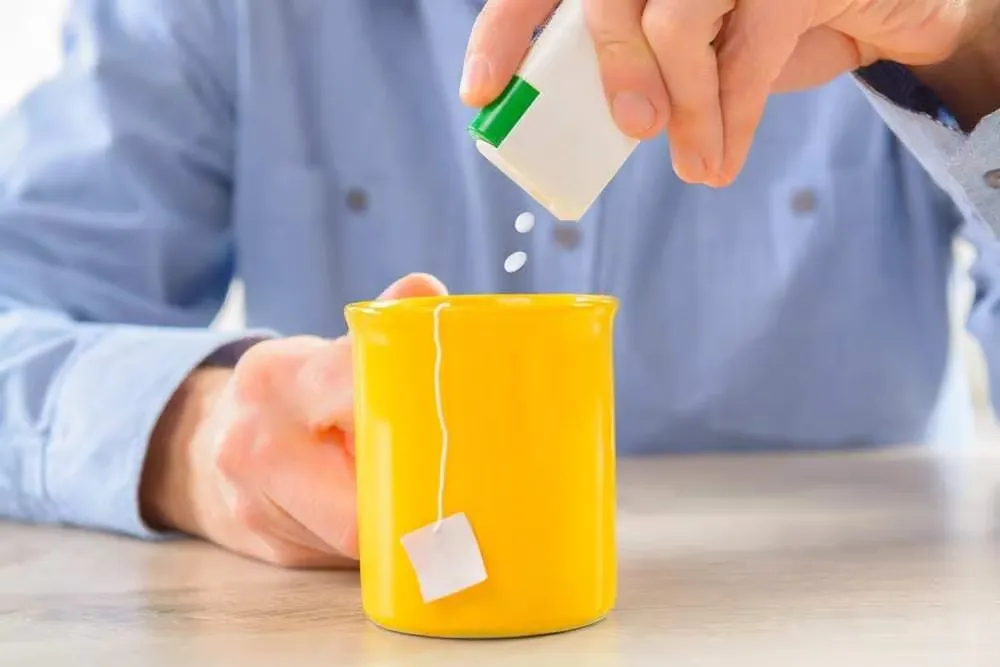
Artificial sweeteners like aspartame and saccharin are commonly used as sugar substitutes in diet sodas and other low-calorie products. While research is ongoing, some studies suggest a potential link between these sweeteners and certain cancers. It’s wise to moderate your intake of artificial sweeteners and choose natural alternatives when possible.
Evidence from Studies
The National Cancer Institute reports that studies in humans have not provided clear evidence that artificial sweeteners are associated with cancer risk. However, the controversy persists, and some health experts advise caution.
Reducing the Risk
- Natural Sweeteners: Use natural sweeteners like stevia or monk fruit.
- Moderation: Limit use of artificial sweeteners.
- Whole Foods: Opt for whole foods that do not require added sweeteners.
8. Grilled Meats

Grilling meat at high temperatures can produce carcinogens like HCAs and PAHs, which form when fat drips onto the heat source and creates smoke. These chemicals can adhere to the surface of the meat. To reduce these risks, try grilling vegetables, using leaner cuts of meat, and marinating meats beforehand to reduce carcinogen formation.
Evidence from Studies
Research has linked high consumption of charred and grilled meats to an increased risk of colorectal, pancreatic, and prostate cancers. A study in the journal Cancer Epidemiology, Biomarkers & Prevention found that individuals who frequently consumed well-done meat had a higher risk of developing colorectal cancer.
Reducing the Risk
- Cook at Lower Temperatures: Use gentler cooking methods such as baking, steaming, or slow cooking.
- Marinate Meat: Marinating meat before cooking can reduce HCA formation.
- Avoid Charring: Cook meat until done but avoid charring.
9. Non-Organic Produce
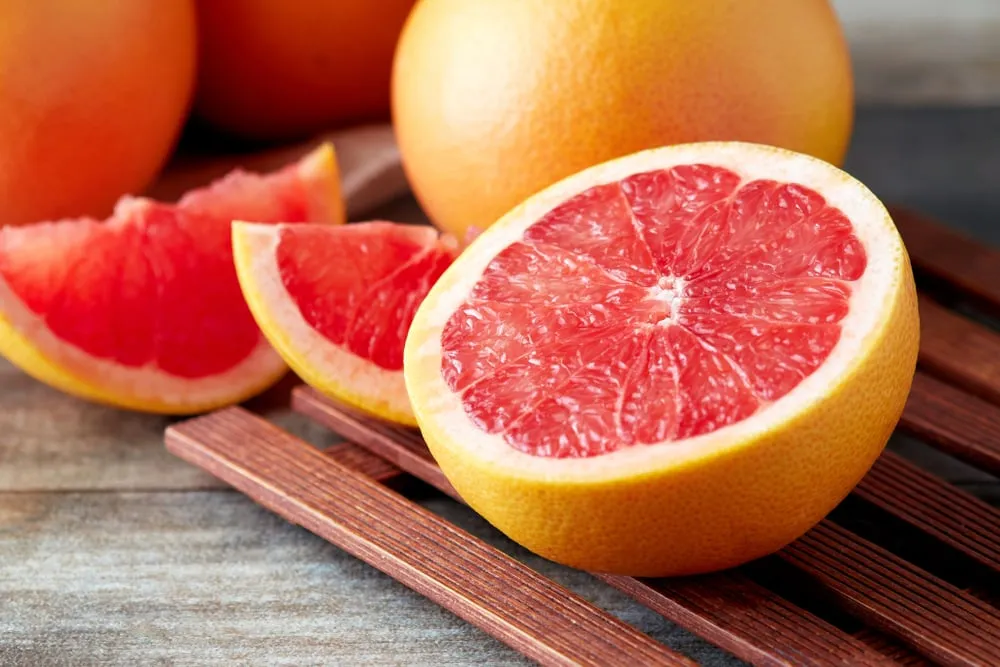
Non-organic produce can contain pesticide residues, which have been linked to cancer. While washing fruits and vegetables can reduce some residue, opting for organic produce when possible can further minimize your exposure to these harmful chemicals.
Evidence from Studies
The Environmental Working Group (EWG) publishes an annual list of produce with the highest pesticide residues, known as the “Dirty Dozen.” Studies have shown that long-term exposure to certain pesticides is associated with an increased risk of various cancers, including leukemia, lymphoma, and brain cancer.
Reducing the Risk
- Organic Produce: Choose organic fruits and vegetables to reduce pesticide exposure.
- Wash Thoroughly: Wash and peel produce to remove pesticide residues.
- Grow Your Own: Consider growing your own produce without the use of pesticides.
10. Canned Foods
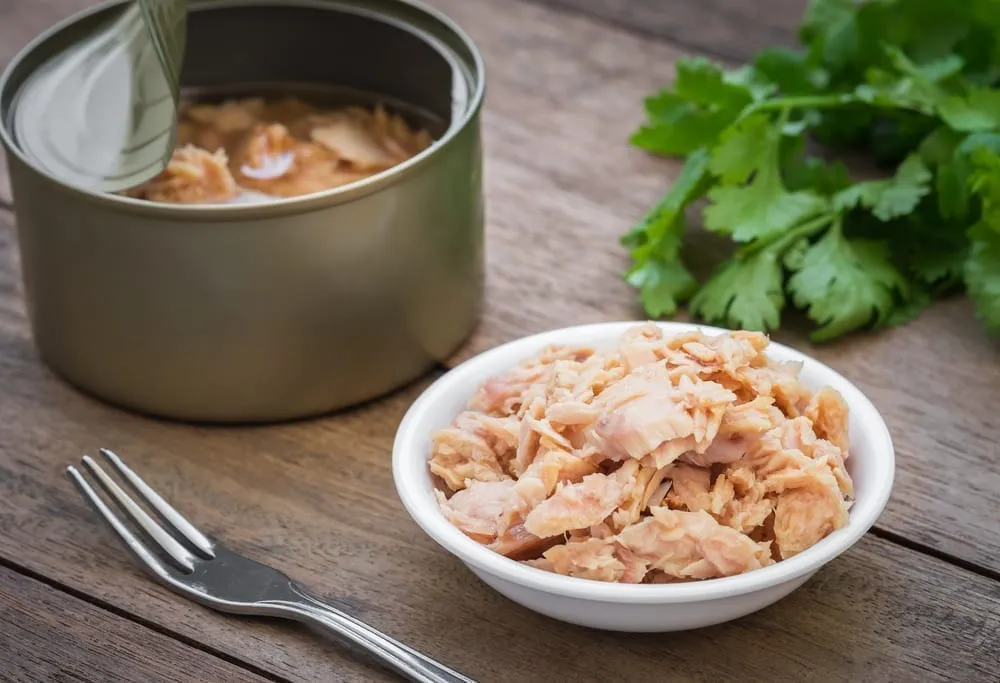
Canned foods are convenient, but the lining of the cans often contains bisphenol-A (BPA), a chemical that can leach into the food and has been linked to cancer. Opt for fresh or frozen foods when possible, or look for BPA-free cans to reduce your exposure.
The Risks of BPA
BPA is used in the lining of many canned foods to prevent the metal from corroding and contaminating the food. However, BPA can leach into the food, especially when the can is heated. BPA is an endocrine disruptor, which means it can interfere with the body’s hormone systems. This disruption can lead to an increased risk of cancers, particularly breast and prostate cancer.
Choosing BPA-Free Options
To minimize your exposure to BPA, look for cans labeled as BPA-free. Many companies are now offering BPA-free options in response to consumer demand. Alternatively, opt for fresh or frozen foods, which do not have the same risks as canned foods. If you do use canned foods, avoid heating them in the can and transfer them to a glass or ceramic container before reheating.
11. Sugar-Sweetened Beverages
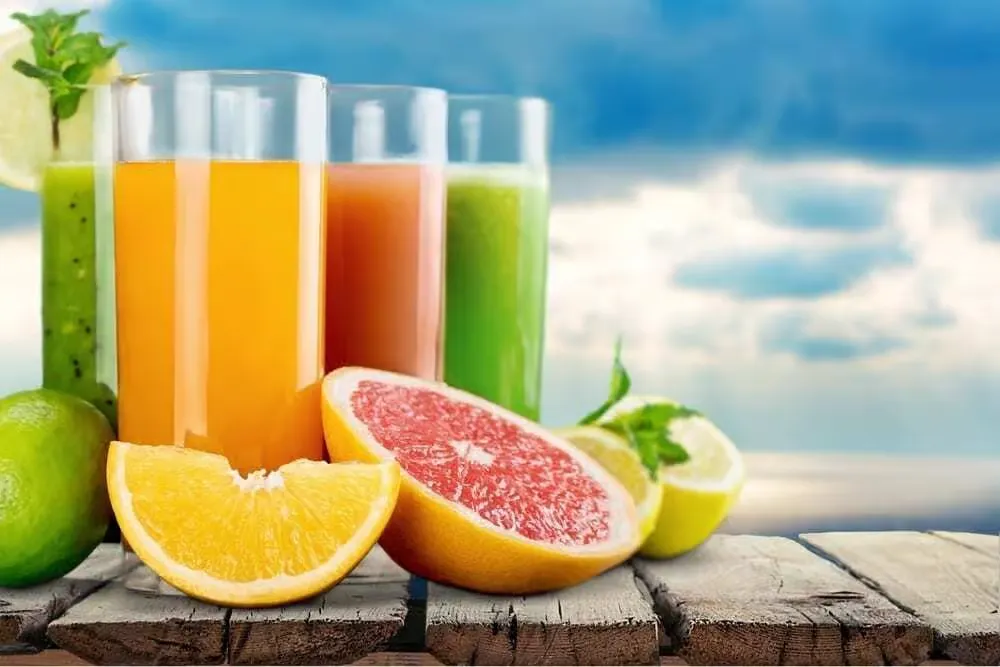
Sugary drinks like soda and sweetened fruit juices are not just bad for your waistline but also for your overall health. These beverages contribute to obesity, which is a significant risk factor for various cancers, including breast, colon, and pancreatic cancers. Opt for water, unsweetened teas, or natural fruit juices without added sugar to stay hydrated and reduce cancer risk.
Evidence from Studies
Research indicates that individuals who consume large amounts of sugary beverages have a higher risk of developing certain cancers. For example, a study published in the BMJ found a correlation between sugary drink consumption and an increased risk of overall cancer and breast cancer.
Reducing the Risk
- Reduce Sugar Intake: Limit consumption of sugary drinks and foods.
- Healthier Alternatives: Choose whole fruits, unsweetened beverages, and foods with natural sugars.
- Read Labels: Be mindful of added sugars in processed foods by reading nutrition labels.
12. Farmed Salmon
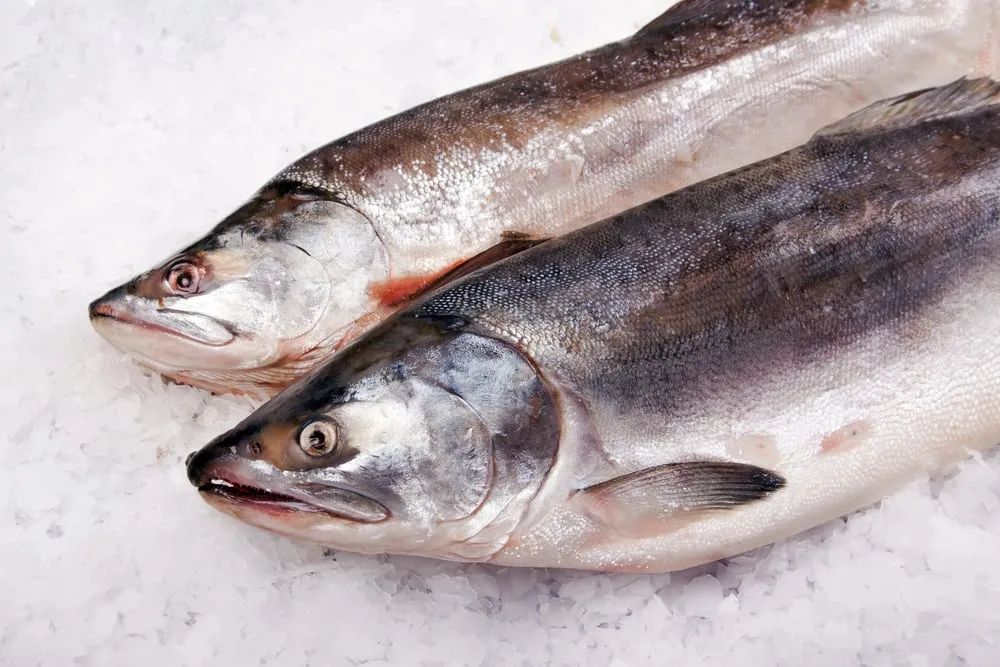
Farmed salmon might seem like a healthy choice, but it often contains higher levels of contaminants like polychlorinated biphenyls (PCBs) compared to wild salmon. PCBs are industrial compounds that can increase cancer risk. Opt for wild-caught salmon to enjoy the health benefits of this fish without the added risks.
Evidence from Studies
Studies have found that farmed salmon can contain significantly higher levels of PCBs and other contaminants compared to wild salmon. A study published in the journal Science found that farmed salmon had higher concentrations of these chemicals, which are potential carcinogens.
Reducing the Risk
- Choose Wild-Caught Fish: Opt for wild-caught fish whenever possible.
- Diverse Seafood: Include a variety of seafood in your diet to minimize exposure to contaminants.
- Organic Options: Look for organic or sustainably farmed fish with lower contaminant levels.
13. Alcohol

Enjoying a glass of wine or a cocktail might seem harmless, but regular alcohol consumption is linked to several cancers, including liver, breast, and esophageal cancers. Alcohol can damage body tissues and interfere with nutrient absorption, increasing cancer risk. Limiting alcohol intake and following recommended guidelines can help mitigate these risks.
Evidence from Studies
The American Cancer Society reports that alcohol consumption accounts for about 6% of all cancers and 4% of cancer deaths in the United States. The risk increases with the amount of alcohol consumed, with heavy drinkers facing the highest risk.
Reducing the Risk
- Moderation: Limit alcohol intake to one drink per day for women and two for men.
- Choose Wisely: Opt for lower-alcohol beverages and avoid binge drinking.
- Non-Alcoholic Options: Explore non-alcoholic beverages such as sparkling water, herbal teas, and mocktails.
14. Potato Chips

Potato chips are a beloved snack, but they are often fried at high temperatures, leading to the formation of acrylamide, a chemical that has been linked to cancer. For a healthier alternative, try baked chips or vegetable crisps, or better yet, snack on fresh fruits and vegetables.
The Risks of Acrylamide
Acrylamide forms in starchy foods, like potatoes, when they are cooked at high temperatures (e.g., frying, baking). Animal studies have shown that acrylamide can cause cancer, and while the evidence in humans is less clear, it is still a cause for concern. The International Agency for Research on Cancer (IARC) has classified acrylamide as a probable human carcinogen.
Healthier Snacking Options
To enjoy crunchy snacks without the risks, consider these healthier alternatives:
- Baked chips: Look for baked versions of your favorite chips, which are lower in fat and acrylamide.
- Vegetable crisps: Try making your own vegetable crisps at home using kale, sweet potatoes, or beets.
- Fresh fruits and vegetables: Snack on fresh produce for a nutrient-rich, low-calorie option.
15. High-Fat Dairy Products

High-fat dairy products, such as whole milk, cheese, and butter, can be a delicious part of many meals. However, they have been linked to an increased risk of certain cancers, particularly prostate cancer. Limiting your intake of high-fat dairy and choosing lower-fat or plant-based alternatives can help reduce this risk.
Evidence from Studies
Several studies have linked high consumption of dairy products to an increased risk of prostate cancer. A study published in the American Journal of Clinical Nutrition found that high dairy intake was associated with a higher risk of prostate cancer in men.
Reducing the Risk
- Low-Fat Alternatives: Choose low-fat or fat-free dairy products.
- Plant-Based Milks: Consider alternatives such as almond, soy, or oat milk.
- Moderation: Consume dairy products in moderation and balance with other healthy food choices.